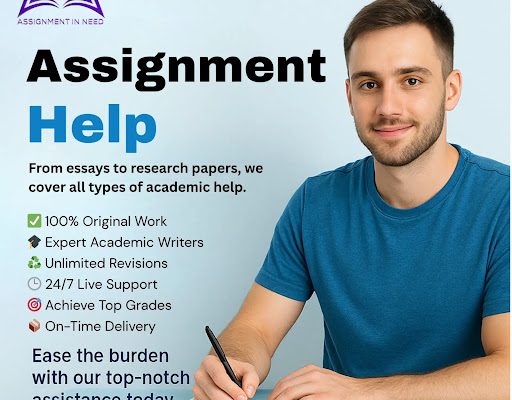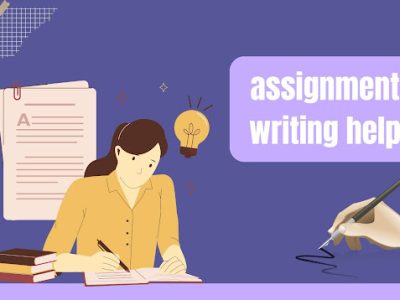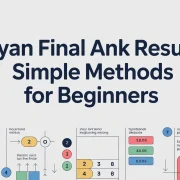Academic conferences and seminars play a crucial role in the journey of any student pursuing higher education. These events serve as platforms to share knowledge, network with peers and professionals, and gain valuable exposure to ongoing research and innovations. Whether it’s your first time or you’ve attended a few, understanding how to prepare effectively can make a significant difference in the experience and outcomes.
This comprehensive guide will walk students through every essential aspect of preparation, from planning to presentation, networking strategies to note-taking tips all with the aim of academic growth and professional development. It also integrates advice for managing workload through assignment help resources.
Why Academic Conferences and Seminars Matter
Building Academic Knowledge and Exposure
- Offers exposure to the latest research trends.
- Provides an opportunity to learn from scholars and industry experts.
- Helps you understand real-world applications of theoretical concepts.
Networking and Collaboration Opportunities
- Meet peers, professors, and researchers from different institutions.
- Initiate academic collaborations and future research partnerships.
- Gain visibility in your academic field.
Boosting Career and Academic Prospects
- Adds value to your CV or academic profile.
- Enhances presentation and public speaking skills.
- Encourages involvement in research and paper writing.
Pre-Event Preparation: Setting Yourself Up for Success
1. Understand the Conference Theme and Audience
Before signing up, go through the event’s theme and schedule. Ensure the sessions align with your field of study or research interests.
Tip: Highlight the sessions that relate to your academic assignments this can reinforce your coursework and reduce the need for repetitive research.
2. Register Early and Review the Schedule
- Early registration usually offers discounted fees.
- Reviewing the schedule in advance helps in selecting relevant talks and workshops.
- Look out for student-specific sessions or panels.
3. Prepare Your Presentation (If Applicable)
If you’re presenting:
- Follow the submission guidelines precisely.
- Ensure your paper is backed by research and structured professionally.
- Create a clean, engaging PowerPoint (or visual aid) that supports your talk.
Need help organising your thoughts into a coherent format? Consider using an [assignment helper] for guidance.
4. Do Background Research on Speakers
Knowing more about the keynote speakers and panellists helps formulate intelligent questions or start meaningful conversations during networking sessions.
Effective Strategies for Attending the Event
1. Attend with Clear Objectives
Set personal goals:
- What do you want to learn?
- Who do you want to meet?
- Are you looking to build a research topic or find a supervisor?
2. Take Smart Notes
- Summarise key takeaways from each session.
- Jot down ideas that can support your academic assignments or dissertation.
- Include quotes, names, and references for citation later.
3. Engage in Q&A Sessions
- Prepare a couple of thoughtful questions.
- Speak confidently and clearly.
- Avoid asking questions just to impress stay authentic.
4. Visit Poster Presentations
Poster sessions are often less formal and provide an excellent opportunity to interact directly with researchers.
Tip: Use your interaction to understand how to frame complex research in simple formats a useful skill for academic writing.
Post-Event: Maximising Long-Term Benefits
1. Follow Up With New Contacts
- Connect on LinkedIn or email a short thank-you note.
- If applicable, share your paper or ask for feedback.
- Continue discussions that were cut short.
2. Reflect on Learnings
- What concepts were new?
- What inspired you most?
- How can the new insights enhance your next academic assignment?
Tip: Use [academic assignment help] platforms to transform your learnings into high-quality reports or essays.
3. Organise Notes and Resources
Sort your notes into:
- Research ideas
- Assignment references
- Personal reflections
This will make it easier when working on your next university submission or research proposal.
Assignment Help and Academic Seminars: A Practical Connection
Attending conferences can be time-consuming, especially when balancing deadlines. Here’s how combining your event attendance with reliable assignment writing help can support your performance:
1. Managing Time and Academic Load
- Use online assignment help to meet deadlines while attending seminars.
- Delegate time-consuming assignments to reliable platforms to focus on networking and learning.
2. Enhancing the Quality of Academic Submissions
- Incorporate new findings or trends from conferences into your assignments.
- Seek writing services to refine your arguments with fresh perspectives gained from expert talks.
3. Finding Help for Research-Based Submissions
- If your seminar or conference focuses on a niche topic, assignment help services can offer tailored support.
- Getting a second opinion from an assignment helper ensures accuracy and relevance in complex subjects.
Practical Tips to Make the Most of Conferences and Seminars
Before the Event
- Prepare a short self-introduction: Know how to introduce your academic interests.
- Create a checklist: Include items like notepads, pens, ID, chargers, and business cards.
- Review your previous assignments: Identify topics you can expand through conference content.
During the Event
- Be punctual to sessions.
- Engage actively but respectfully.
- Stay hydrated and rested for optimal focus.
After the Event
- Organise materials (brochures, contacts, presentation handouts).
- Update academic journals or blogs with new insights.
- Start working on assignments while ideas are fresh, possibly with support from an assignment help website.
Common Mistakes to Avoid
- Overloading your schedule: Choose sessions mindfully.
- Skipping networking breaks: These often lead to the most valuable conversations.
- Not preparing questions: Missed opportunities for deeper understanding.
- Failing to review post-event material: Your memory fades, but notes and recordings last.
Using Assignment Help Strategically
Students attending academic events can fall behind on coursework. Instead of compromising on quality, consider smart outsourcing:
- Assignment writing help ensures you meet submission standards.
- Academic assignment help services assist in data organisation and writing structure.
- Trust only established platforms like an assignment help website to maintain confidentiality and academic integrity.
Conclusion
Preparing for academic conferences and seminars is more than ticking a box it’s about investing in your academic and professional journey. From pre-event research to networking, and from presentations to follow-ups, each stage offers growth. Balancing these opportunities with coursework is easier when supported by trustworthy assignment help solutions.
Platforms such as (assignnmentinneed.com) can serve as a valuable academic support system, especially during peak conference seasons. Use such tools wisely to stay ahead without burning out.
Conferences may last a few days but the knowledge, contacts, and confidence you gain will serve you for years.

















Comments